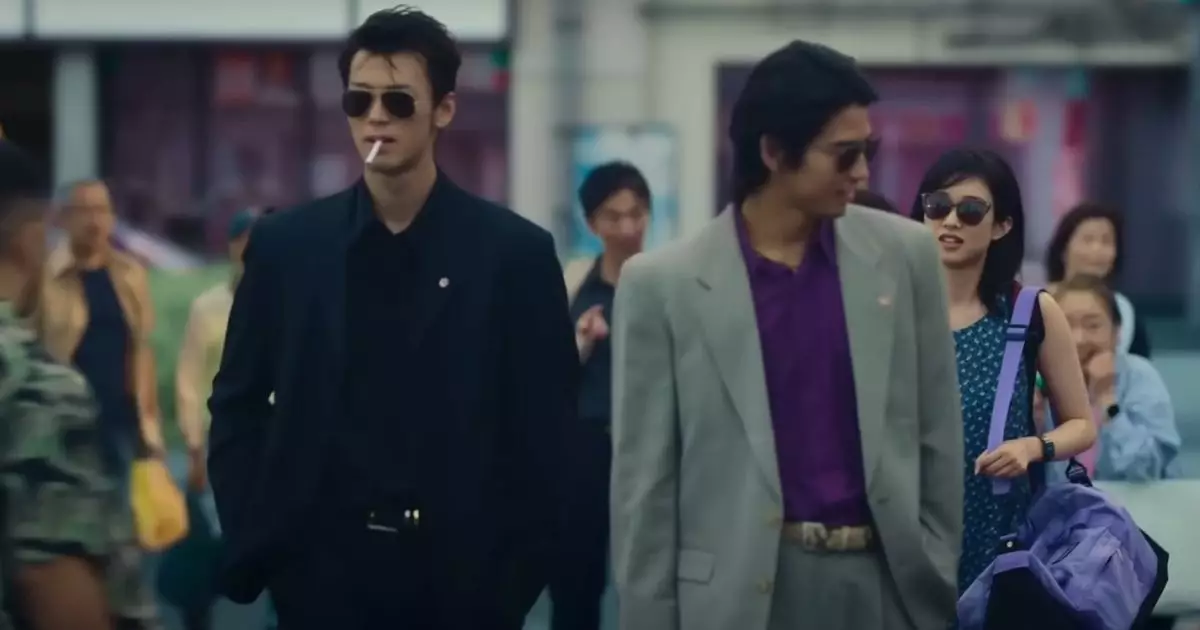The world of Yakuza has long been synonymous with vibrant storytelling, action-packed gameplay, and an eclectic mix of humor intertwined with dramatic narratives. With the recent announcement of Amazon’s adaptation titled “Like A Dragon: Yakuza,” fans hold their breath in excited anticipation—yet, caution remains the guiding sentiment. This article delves into the trailer’s implications, the challenges of translating the franchise’s essence to the screen, and a reflection on what makes the Yakuza series so compelling.
Adapting a beloved video game series into a television show often carries immense pressure. There exists a delicate balance between faithful representation and innovative storytelling. Fans are deeply rooted in the lore, and any deviation can provoke backlash. The trailer opens with a nostalgic nod to the past, showing a young Kiryu observing a brutal confrontation, reflective of the series’ hardened ethos. However, it strays from the core of Yakuza’s charm—its eccentricity. The absence of zany side-stories or quirky characters raises eyebrows but also inspires hope for a more serious narrative arc that suits the medium of television.
The prospective show seems to forsake the signature lightheartedness present in many Yakuza missions, emphasizing a gritty portrayal of crime and camaraderie instead. For dedicated followers of the franchise, this shift raises questions: Can the allure of Kiryu’s life be captured without the absurd side quests? While the hilarious antics may not seamlessly transition to a dramatic narrative format, the existential dilemmas and moral complexities present in Yakuza’s underbelly deserve attention.
At the heart of the adaptation, as outlined in Amazon’s official blurb, lies a tale of friendship, sacrifice, and conflict. Set against the tumultuous backdrop of 1995 Kamurocho, the narrative revolves around Kiryu and his friends as they embark on a heist governed by the tumultuous Yakuza hierarchy. This foundation provides fertile ground for character development but raises the stakes significantly by aligning with the struggles of personal relationships under pressure.
Furthermore, the transition from the innocent ambitions of youth to the grave responsibilities faced post-incarceration invites viewers to ponder the price of loyalty in a treacherous world. What is the trajectory of friendships fractured by crime and survival? How do aspirations change when faced with the reality of the yakuza’s iron grip? As Kiryu returns to a city that has evolved during his absence, the adaptation could explore poignant themes of redemption and the consequences of choices made in the heat of youth.
One of the enduring qualities of Yakuza games lies in their ability to intertwine human stories with broader narratives. Amidst the chaos, there are moments of catharsis—of understanding, compassion, and personal growth. Yet, Amazon’s adaptation has its work cut out for it in effectively portraying these nuanced interactions. By failing to include elements like assisting quirky NPCs, the potential for emotional impact may diminish.
For example, the humor and warmth derived from characters such as Mr. Masochist are integral to capturing the spirit of Yakuza. Absences of such unique elements could make the show feel soulless, resulting in an experience that is merely a thriller devoid of the heart that distinguishes Yakuza from other narratives.
Given the franchise’s established endings, it’s disheartening to consider that the show may follow a predictable path. Viewers familiar with Yakuza’s mechanics can envision impending climactic showdowns—a cycle of conflict, resolution, and ultimate sacrifice that leaves characters reborn yet unchanged. If audiences can construct the ending from the beginning, the adaptation may falter in delivering fresh perspectives.
Though the stakes are high and the expectations even higher, there lies an unshakeable conviction that a compelling story can be crafted from Yakuza’s rich legacy. Successfully bridging the gap between past and present, humor and tragedy, could yield a series that resonates with both longtime fans and new viewers. Ultimately, a thoughtfully executed series can pay homage to what made Yakuza an iconic franchise while unearthing its viability on a different storytelling platform. For now, the cautious optimism persists, as fans await to see whether Amazon can unleash the full potential of this iconic narrative.

